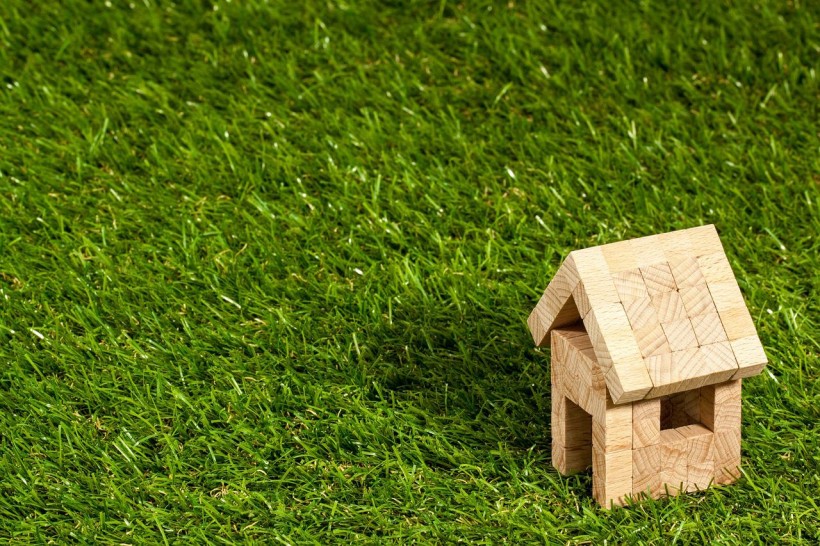In the last few years, people have started to become very concerned about their carbon footprint and how many emissions they are putting into the world. Recent studies have shown that the building sector produces 40% of annual emissions, so many people have started to voice their concerns. If you are worried about what to do with all of this information, keep reading to see what realtors can do about reducing worldwide emissions.
When it comes to keeping your sales geared towards sustainability, try to apply the "Reduce, Reuse, and Recycle" phrase to your sales and approach.
-
Reduce: Reduce the number of new homes
-
Reuse: Reuse old materials
-
Recycle: Recycle homes into new homes with sustainable materials
Have a look at how you can apply these concepts to your sales approach.
1. Look for energy-efficient housing.
(Photo : Riccardo Annandale on Unsplash)
If you want to make sure that you are lessening your own carbon emissions, then try to sell eco-friendly homes. Many homes have been built in the last few years with sustainable materials and an eco-friendly design. If you want to try and focus more on selling homes that are good for the environment, then look at the house's features and details before making the sale.
Selling eco-friendly homes will also benefit you as eco-friendly homes are usually a pretty easy sale. "Eco-friendly upgrades make any home much easier to sell, " says Don Shurts, a Dayton realtor. This means that people are looking less for pools and marble flooring and more for things to help the earth.
2. Sell older homes
(Photo : Lindsay on Unsplash)
Reduce, reuse, and recycle has always been the best way to make sure you're doing something good for the earth, and this can apply to real estate too. Large developments take up valuable green space, and they produce a more significant amount of carbon emissions than an older residential home. Reusing an older home and adding eco upgrades is much better than buying something new.
Older homes may require a few upgrades in order to ensure they are in good condition, but it is better to add sustainable materials to the house instead of purchasing a prefab home. Even if you choose to do some major renovations on the home, you are still reusing the land. It's important to allow as much undeveloped land to remain as we can if we want our ecosystems to continue to thrive.
3. Look at selling smaller homes.
Smaller homes are much better for the environment as they are significantly easier to outfit with eco upgrades. A 2020 study showed that Americans living in larger homes that are located in expensive neighborhoods are producing 25% more emissions than those living in smaller, less expensive areas. If you want to make sure you're selling homes that won't be harming the environment hen the smaller, the better.
Smaller homes are the best way to go if you want to make sure you're selling a home that is energy efficient. Large homes waste valuable resources like natural gas by using vast amounts in non-essential areas. If you think about how much energy it takes to cool a small two-bedroom home using central air and compare it to the amount it takes to cool down a six-bedroom home, it's quite a difference, especially if the same amount of people are living in both homes!
4. Look for house flippers to help out.
Many investors have been house-flipping for years, but some have started to flip due to their eco-conscious lifestyle. People have begun to lean towards reusing materials from the homes they are converting and adding sustainable materials for repairs instead of demolishing and going in from the ground up with everything brand new.
Lumber is expensive, and it makes quite of bit of an environmental impact, so reusing perfectly good wood instead of purchasing some from your hardware store is better for everyone. You can also use reclaimed wood from other homes if you happen to have access to it. Reusing materials is one of the best ways to make sure you aren't creating more carbon emissions from production and transportation.
5. Talk to the seller about donating their items.
When people move, they often leave behind or trash things they won't be using in their new home. You can take these items to your local thrift store for donation instead of allowing them to sit in a landfill. Sometimes these items are still in excellent condition, so talk to the seller about putting those items aside instead of throwing them in a dumpster.
You can also approach the seller about offering up their more oversized items (such as outdoor furniture, outdoor play equipment or other large items they might not want to move) to the new buyers as part of the sales agreement. This helps reduce any carbon emissions that could be produced from moving it, and it allows the seller a great option to increase their home's price by including these items.
6. Reccomend eco-upgrades
(Photo : Patrick Perkins on Unsplash)
When some people sell, they turn to their local realtor to help them figure out what upgrades they can make to their homes to get better offers. If they are looking for some ideas, then recommend eco upgrades like energy-efficient appliances or a smart lighting system. Any eco-friendly upgrade will add a bit of value and entice people who are looking for more sustainable lifestyles.
These upgrades are a great way to attract new buyers, and they are usually relatively quick to install. "If you want a quick way to add value to your home, look at smart upgrades," says Ron Wysocarsk, CEO of Wyse Home Realty. You can also recommend things to help their exterior such as adding a small area for a vegetable garden, installing a wi-fi enabled lighting system to reduce energy costs and solar panels to help reduce their energy bills.
There are plenty of different ways you can try to keep your carbon footprint from growing while helping your clients find the homes of their dreams. Buyers have been leaning towards getting more eco-conscious homes in the last few years so now is a great time to adjust your sales. As long as you remember the "reduce, reuse, recycle" adage and apply it to your sales, you can ensure that you're selling homes that will help everyone.
© 2024 NatureWorldNews.com All rights reserved. Do not reproduce without permission.
* This is a contributed article and this content does not necessarily represent the views of natureworldnews.com






